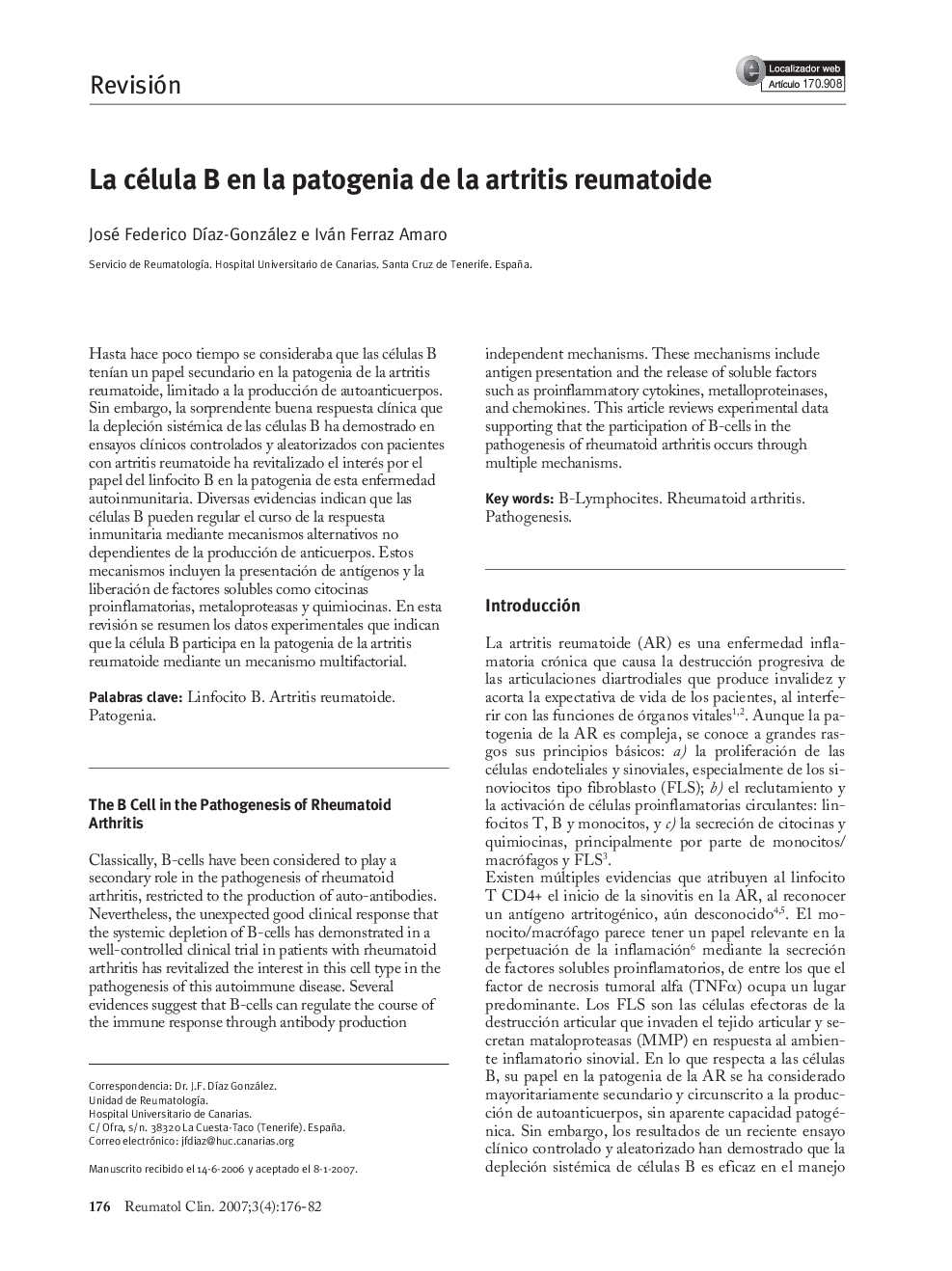| Article ID | Journal | Published Year | Pages | File Type |
|---|---|---|---|---|
| 3383831 | Reumatología Clínica | 2007 | 7 Pages |
Abstract
Classically, B-cells have been considered to play a secondary role in the pathogenesis of rheumatoid artritis, restricted to the production of auto-antibodies. Nevertheless, the unexpected good clinical response that the systemic depletion of B-cells has demonstrated in a well-controlled clinical trial in patients with rheumatoid artritis has revitalized the interest in this cell type in the pathogenesis of this autoimmune disease. Several evidences suggest that B-cells can regulate the course of the immune response through antibody productionindependent mechanisms. These mechanisms include antigen presentation and the release of soluble factors such as proinflammatory cytokines, metalloproteinases, and chemokines. This article reviews experimental data supporting that the participation of B-cells in the pathogenesis of rheumatoid arthritis occurs through multiple mechanisms.
Related Topics
Health Sciences
Medicine and Dentistry
Immunology, Allergology and Rheumatology
Authors
José Federico DÃaz-González, Iván Ferraz Amaro,
